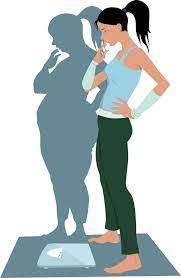

Posture speaks volumes about a person’s confidence, mood, and overall self-perception.
Forward head posture (FHP), a common postural misalignment where the head juts forward in front of the shoulders, not only causes physical discomfort but also significantly impacts self-esteem and body image.
In this article, BestForwardHeadPostureFix shall delve into the intricate connection between FHP and psychological well-being, exploring how this posture can alter perceptions of self-worth and influence interactions with others.
We will also examine scientific studies and real-life examples to understand the broader implications of FHP on mental health.
Article Index
- Understanding Forward Head Posture: Causes and Prevalence
- How Forward Head Posture Influences Self-Esteem
- The Relationship Between FHP and Body Image
- Social Perceptions and the Stigma of Poor Posture
- Psychological Effects of Chronic Pain Associated with FHP
- Scientific Evidence Linking FHP to Mental Health
- Real-Life Examples: Stories of Struggle and Change
- Conclusion: Recognizing the Emotional Toll of FHP
Understanding Forward Head Posture: Causes and Prevalence
Self-esteem is intricately connected to body language and posture, serving as a visual cue for confidence and self-assurance.
Forward head posture (FHP) creates a hunched, closed-off appearance that can project insecurity and low confidence to others.
This effect is not just social but psychological; a study published in Health Psychology (2017) demonstrated that upright posture is associated with higher self-esteem, enhanced mood, and a more positive self-perception.
In contrast, slouched or forward head posture correlated strongly with feelings of low self-worth and diminished confidence.
FHP often exacerbates negative self-perceptions, particularly in professional or social environments where appearance and body language hold significant weight.
Individuals with FHP may feel self-conscious about how they are perceived, leading to avoidance behaviors such as shying away from public speaking or social interactions.
This cycle of avoidance reinforces feelings of inadequacy and perpetuates the problem.
Example: Sarah, a 30-year-old teacher, experienced this firsthand. She noticed that her FHP made her feel less confident during parent-teacher meetings.
Fearing judgment based on her perceived lack of professionalism, she often hesitated to voice her opinions.
Over time, this hesitation limited her ability to connect effectively with parents and colleagues, underscoring how posture impacts self-esteem and interpersonal dynamics.
How Forward Head Posture Influences Self-Esteem?
Self-esteem is intricately connected to body language and posture, serving as a visual cue for confidence and self-assurance.
Forward head posture (FHP) creates a hunched, closed-off appearance that can project insecurity and low confidence to others.
This effect is not just social but psychological; a study published in Health Psychology (2017) demonstrated that upright posture is associated with higher self-esteem, enhanced mood, and a more positive self-perception.
In contrast, slouched or forward head posture correlated strongly with feelings of low self-worth and diminished confidence.
FHP often exacerbates negative self-perceptions, particularly in professional or social environments where appearance and body language hold significant weight.
Individuals with FHP may feel self-conscious about how they are perceived, leading to avoidance behaviors such as shying away from public speaking or social interactions.
This cycle of avoidance reinforces feelings of inadequacy and perpetuates the problem.
Example: Sarah, a 30-year-old teacher, experienced this firsthand. She noticed that her FHP made her feel less confident during parent-teacher meetings.
Fearing judgment based on her perceived lack of professionalism, she often hesitated to voice her opinions.
Over time, this hesitation limited her ability to connect effectively with parents and colleagues, underscoring how posture impacts self-esteem in social gatherings and interpersonal dynamics.
The Relationship Between FHP and Body Image
Body image refers to an individual’s perception of their physical appearance and how they believe others view them.
Forward head posture (FHP) can significantly distort this perception, leading to dissatisfaction and negative thoughts about one’s body.
A slouched posture associated with FHP can make individuals appear shorter, less confident, or less athletic, undermining their self-esteem.
These effects are particularly pronounced in a culture that values upright, confident postures as symbols of health and attractiveness.
A study published in Body Image (2018) found a clear link between posture and body satisfaction.
Individuals who improved their posture reported enhanced body confidence and a more positive self-view. Conversely, FHP often amplifies feelings of physical inadequacy, making individuals overly critical of their appearance.
Example: Tom, a 25-year-old fitness enthusiast, developed FHP due to extended gaming sessions.
Despite his dedication to the gym, his slouched posture detracted from his muscular physique, leaving him frustrated and dissatisfied with his progress.
This discontent with his body image highlights how FHP can overshadow physical achievements and impact overall self-esteem.
Social Perceptions and the Stigma of Poor Posture
Posture plays a crucial role in shaping how individuals are perceived by others, often serving as a nonverbal indicator of confidence, energy, and approachability.
Forward head posture (FHP), however, can unintentionally project traits such as insecurity, lack of vitality, or disinterest.
These perceptions can negatively affect professional relationships, social interactions, and even first impressions, often leading to missed opportunities.
A study published in the Journal of Nonverbal Behavior (2016) highlighted that individuals with upright posture were consistently rated as more competent, confident, and approachable compared to those with poor posture.
Conversely, those with FHP or other postural deviations were often viewed less favorably.
The stigma associated with poor posture can exacerbate social anxiety, making individuals reluctant to engage in interactions and further eroding self-esteem.
Example: Emily, a 35-year-old marketing executive, avoided networking events because she believed her poor posture made her appear unprofessional.
This self-consciousness not only hindered her confidence but also limited her career progression by preventing her from forming valuable professional connections.
Emily’s experience illustrates how FHP can influence perceptions and create barriers to success.
Psychological Effects of Chronic Pain Associated with FHP
Forward head posture (FHP) often causes chronic pain in the neck, shoulders, and upper back due to the increased strain on the cervical spine and surrounding muscles.
This persistent physical discomfort can have a profound impact on mental health, contributing to irritability, anxiety, and even depression.
Chronic pain not only diminishes overall quality of life but also undermines an individual’s self-image, making it harder to engage confidently in daily activities and maintain positive social interactions.
A study published in Pain Research and Management (2019) found that individuals with chronic pain stemming from postural issues were significantly more likely to report symptoms of depression and anxiety.
This finding emphasizes the deep interconnectedness between physical pain and psychological well-being.
Example: Mark, a 40-year-old software developer, developed FHP after years of desk work. The constant neck pain reduced his productivity and left him feeling incapable and insecure.
This impacted his confidence during professional and personal interactions, illustrating how FHP affects both mental and emotional health.
Scientific Evidence Linking FHP to Mental Health
Numerous studies have explored the connection between posture and mental health:
- Harvard Business School, 2010: Research demonstrated that adopting an upright posture increased feelings of power and reduced stress, whereas slouched postures led to the opposite effects.
- Journal of Behavioral Therapy and Experimental Psychiatry, 2017: This study found that individuals with upright posture experienced reduced symptoms of depression compared to those with poor posture.
- Pain Research and Management, 2019: Chronic pain caused by FHP was linked to heightened anxiety and depression, emphasizing the far-reaching effects of poor posture on mental health.
These findings underline the significant role of posture in shaping emotional and psychological well-being.
Real-Life Examples: Stories of Struggle and Change
We would like to share 3 such stories with you:
Case Study 1: Sarah’s Transformation
Sarah, a dedicated teacher, began to notice how her forward head posture (FHP) was subtly undermining her confidence during parent-teacher meetings.
She often felt self-conscious, perceiving her slouched posture as unprofessional. Determined to make a change, Sarah incorporated posture-specific exercises, such as chin tucks and shoulder retractions, into her daily routine.
She also made ergonomic adjustments in her classroom and at home, ensuring her workspace encouraged proper alignment.
Over time, her improved posture alleviated persistent neck pain and significantly boosted her confidence.
This newfound self-assurance allowed Sarah to engage more effectively with parents and colleagues, transforming her professional interactions.
Case Study 2: Tom’s Fitness Journey
Tom, a fitness enthusiast, felt frustrated that his forward head posture detracted from the muscular physique he worked so hard to achieve.
Despite consistent gym sessions, his slouched appearance diminished his confidence in his body image. Seeking help, Tom worked with a physical therapist who designed a program targeting his FHP.
Through resistance exercises, mobility drills, and posture correction techniques, Tom gradually improved his alignment.
The transformation not only enhanced his physical appearance but also restored his self-esteem. Encouraged by the progress, Tom pursued his fitness goals with renewed motivation and pride.
Case Study 3: Emily’s Career Boost
Emily, a marketing executive, often avoided networking events, feeling that her poor posture made her appear less capable and approachable.
Recognizing the impact of FHP on her career, Emily turned to yoga and mindfulness practices to address the issue.
These activities improved her posture by increasing her awareness of body alignment and strengthening her core muscles.
Over time, Emily’s improved posture helped her feel more confident in professional settings.
She began attending networking events with greater ease, forming valuable connections that led to exciting career opportunities.
Her transformation highlighted the powerful link between posture and self-confidence in achieving professional success.
Recognizing the Emotional Toll of FHP
Forward head posture (FHP) isn’t just about physical stiffness—it can take a real toll on how you feel about yourself.
Studies suggest that when people maintain a slouched or collapsed posture, they tend to report lower moods, reduced energy, and even lower self-esteem.
On the other hand, sitting upright has been shown to boost confidence and resilience under stress, almost like a natural mood enhancer.
The emotional strain often comes from more than just looks. FHP alters how you breathe, restricting lung capacity and leading to shallow breathing.
Shallow breathing is closely tied to anxiety, fatigue, and difficulty focusing.
Many people don’t realize that their constant neck strain may also be affecting their mental clarity and stress levels.
Take Riya, a 29-year-old graphic designer, who noticed she avoided turning on her camera during meetings because her posture made her feel self-conscious.
Once she began practicing simple “chin tuck” and bridge pose yoga exercises and reminding herself to sit tall before calls, she not only looked more confident but reported feeling calmer and more in control during presentations.
Similarly, Arjun, a 41-year-old software lead, began taking posture breaks during his workday. Within weeks, he noticed less fatigue, deeper breathing, and a boost in his willingness to engage in team discussions.
His small habit change improved both his physical comfort and social confidence.
Posture also shapes how others perceive us. Upright postures signal strength and openness, while FHP can unintentionally project low confidence.
This means correcting FHP is not just about comfort—it is about reclaiming presence, credibility, and self-belief.
Recognizing the emotional drag of FHP is the first step. The next is adding small, daily alignment habits—like mindful sitting, deep breathing, and posture resets—that can restore not only physical ease but also emotional well-being and self-assurance.
References:


